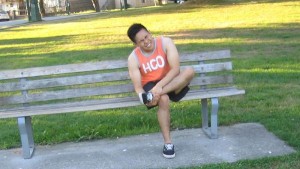The tendons are the thick bands of tissue that are responsible for connecting muscles to the joints in a joint. The usual areas include the ankles, knees, elbows and shoulders. Due to overuse, chronic health issues and incorrect conditioning can cause torn or ruptured tendons. The symptoms of a ruptured tendon include a popping sensation during the rupture, pain, weakness in the affected joint and bruising. The treatment for a ruptured tendon includes the application of a cast in order to allow the tendon to heal as well as surgery. In both forms of treatment, it will take up to six months for the individual to regain full functionality of the tendon.
Aging process
It is important to note that the blood supply in the body starts to deteriorate as an individual starts to age. The diminished supply of blood will eventually weaken the tendons. The area of the tendon with the least amount of blood flow is most likely to weaken first. The weakened region will continue to degenerate with age and the risk for rupturing increases. Many middle-aged individuals who take part in sports or activities can end up with a ruptured tendon. If an individual is suspected with a ruptured tendon, a doctor must be consulted for proper assessment.

Injuries
The usual cause of a ruptured tendon is injury. A tendon can rupture in the weakened region once a traumatic event occurs in that area. In most cases, the Achilles tendon in the foot or the patellar tendon in the knee will rupture during instances where the individual jumps, falls, runs or trips over. Even lifting of heavy objects and falling can cause a ruptured tendon in the shoulder or arm. By enrolling in a course on first aid today, you can quickly provide the appropriate measures to prevent further injury on the affected area.
Medications
There are some medications that can heighten the risk for developing a ruptured tendon. Medications such as corticosteroids can lead to weakness in the tendons which increases the risk for rupturing. With this in mind, it is best to consult a doctor for appropriate medications to take. There are also a group of antibacterial medications known as fluoroquinolones that can also cause ruptured tendons. The medications available in injectable or oral form are likely to trigger a ruptured tendon among those who are over 60 years old, using corticosteroids and those who have chronic health issues.
Medical issues
Certain health issues can cause a diminished supply of blood to the tendons. Rheumatoid arthritis, chronic renal failure and diabetes are chronic issues that can increase the risk for developing a ruptured tendon. Certain conditions such as tendonitis which involves the inflammation of the tendon can increase the possibility for a ruptured tendon.
